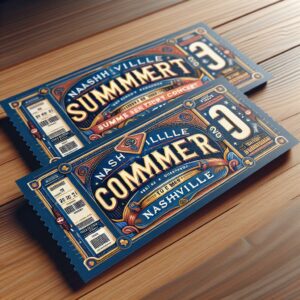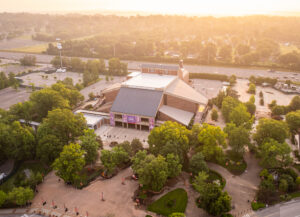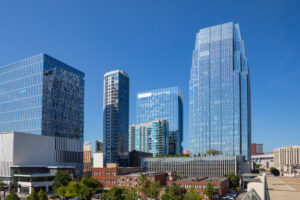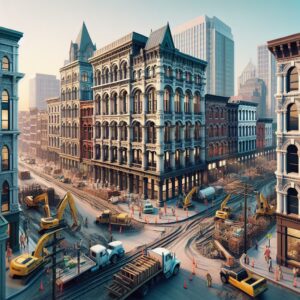
Nashville’s Top Metal Roofing Questions Answered!
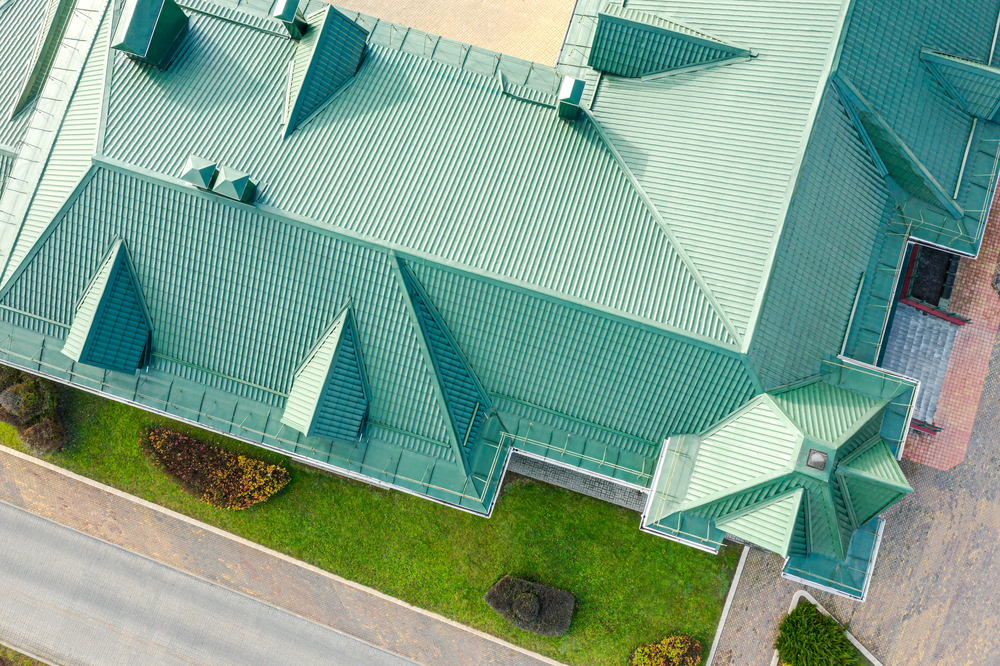
What is the average lifespan of a commercial metal roof?
The average lifespan of a commercial metal roof is around 25 years. However, a metal roof can last up to 40 years with proper care and maintenance.
How much does a commercial metal roof cost?
The cost of a commercial metal roof will vary depending on the size, complexity, and materials used. However, a metal roof costs around $6-8 per square foot.
What are the benefits of a commercial metal roof?
A metal roof can offer many benefits for businesses, including:
– A lifespan that is 3-4 times longer than an asphalt shingle roof
– Reduced energy costs due to better insulation properties
– Resistance to weathering and fire
– Less noise pollution than traditional roofs
Are there any disadvantages to commercial metal roofing?
Though metal roofs come with a variety of benefits, there are a few potential disadvantages to consider as well:
– Metal roofs can be more expensive than traditional roofing materials
– They can be more difficult to install
– They may not be as aesthetically pleasing as some other roofing material
How do I know if commercial metal roofing is right for my business?
There are a few things to consider when deciding if commercial metal roofing is right for your business:
– Consider the lifespan of a metal roof and whether it will be worth the investment in the long run.
– Consider how much energy your business spends on cooling and heating, as a metal roof can help reduce energy costs.
– Weigh the pros and cons of metal roofs vs. other roofing options to see which would fit your business best.
How can I ensure that my commercial metal roof will last?
You can do a few things to ensure your commercial metal roof lasts as long as possible:
– Hire a reputable roofing contractor experienced in installing metal roofs.
– Follow all of the manufacturer’s instructions for care and maintenance.
– Keep an eye on your roof for any signs of wear and tear, and repair them as soon as possible.
What are some maintenance tips for commercial metal roofs?
Commercial metal roofs are designed to be durable and low-maintenance, but you can do a few things to keep them in good condition. Make sure the roof is clear of debris, such as leaves, sticks, and other objects that could cause damage. Inspect the roof regularly for any signs of damage or leaks, and fix any problems as soon as possible. If you notice any rust or corrosion, clean it off with a metal brush and coat it with a rust-inhibiting paint or sealant. Keep an eye on the weather, and take precautions against high winds, heavy rains, or snowstorms that could damage the roof.
How can I find a reputable commercial metal roofing contractor?
Research is one of the best ways to find a reputable commercial metal roofing contractor. Get recommendations from family and friends, or do a quick online search to find reviews from past customers. You can also check with your local Better Business Bureau to see if any complaints have been filed against the contractor you’re considering. Check this post for a more detailed checklist on finding the right commercial metal roofing contractor in Nashville.
Are there any special considerations for commercial metal roofing installation?
Depending on the type of business, there can be different considerations for commercial metal roofing installation. For example, a restaurant may need a grease-resistant finish to prevent stains, while a warehouse may need a more durable roof to handle heavier loads. Talk to your contractor about the specific needs of your business.
What type of metal roofing is best for commercial buildings?
There is no definitive answer to this question, as each commercial building is different and may require a different type of metal roofing. With that being said, some of the most popular types of metal roofing for commercial buildings include steel, aluminum, and copper. Each has its own advantages and disadvantages, so it’s important to weigh the pros and cons of each before making a decision.
What are the disadvantages of a steel roof?
While steel roofs are extremely durable and can last for decades, they are susceptible to rust and corrosion. They can also be a little noisy in the rain or during severe weather conditions. Additionally, steel roofs are more expensive than shingles, but they will last much longer.
What is the cheapest type of metal roof?
The cheapest type of metal roof is a corrugated steel panel roof.
How much does a metal roof cost in Tennessee?
Metal roofs in Tennessee can cost anywhere from $5 to $12 per square foot, depending on the materials used.
What is the difference between a tin roof and a metal roof?
Tin roofs are made of any soft metal that has been tin and lead-coated. Although tin is no longer a popular roofing material, “tin roof” refers to galvanized steel roofing and metal roofing.
A metal roof is any roofing material made from metal. This includes steel roofs, tin roofs, and aluminum roofs.
Do metal roofs attract lightning?
No, metal roofs do not attract lightning. In fact, research has shown that metal roofs are as safe as any other type of roofing material when it comes to lightning strikes.
How do I know if my metal roof needs repair?
It is always a good idea to have your roof inspected by a professional roofing contractor every few years to check for any signs of damage or wear. However, if you notice any leaks, missing shingles, or other problems with your metal roof, it is important to have them repaired as soon as possible to prevent further damage.
Do metal roofs leak?
Metal roofs are very resistant to leaks, but no roof is completely leak-proof. If you do notice a leak in your metal roof, it is important to have it repaired as soon as possible to prevent further damage.
Is it OK to put a metal roof over shingles?
Yes, it is usually acceptable to install a metal roof over shingles, provided that the shingles are in good condition and there are no leaks. However, you may want to consult with a professional roofing contractor before doing so.
How often should metal roof screws be replaced?
Metal roof screws should be checked periodically and replaced as needed. However, replacing all of the screws on a metal roof at once is not necessary.
Do metal roofs rust?
No, metal roofs do not rust. However, they can develop a patina over time that may give them a rusty appearance. This patina is actually a protective layer that helps to prevent further corrosion.
Why do insurance companies like metal roofs?
There are several reasons why insurance companies like metal roofs. Metal roofs are very durable and resistant to fire, wind, and hail damage. They also tend to last longer than other types of roofs, which means they require less maintenance and repair over time.
What is the best color for a metal roof?
The best color for a metal roof depends on your personal preferences and the style of your home. Darker colors tend to be more popular because they absorb heat better, which can help keep your building warmer in the winter. Lighter colors reflect heat more, which can help keep your building cooler in the summer. Ultimately, the best color for your metal roof is the one that you think looks best on your home.
Do metal roofs make houses hotter?
The right color and metal used on your commercial property can help to keep your building cooler in the summer. Metal roofs reflect sunlight rather than absorb it like asphalt shingles, keeping your building cooler during the hot summer months.
Do I need gutters with a metal roof?
It is not necessary to have gutters with a metal roof, but they can help to protect your building from water damage. Gutters can catch rainwater and snowmelt and direct it away from your building, which can help to prevent leaks.
Do metal roofs affect cell phone reception?
No, metal roofs do not affect cell phone reception. Metal roofs do not block or interfere with radio waves, so your cell phone signal should not be affected.
Are metal roofs noisy in the rain?
Metal roofs are thick enough to deaden the sound of rain, so they will not make your building any noisier than other types of roofs. In fact, you may find that metal roofs actually help to reduce noise levels inside your building by reflecting sound waves rather than absorbing them.
Can you walk on metal roofs?
Yes, but depending on the inclination of the roof, it may be difficult or dangerous to walk on. It is generally best to leave roof repairs and maintenance to the professionals.
Is a metal roof worth the money?
Yes, metal roofs are worth the money. They are durable, long-lasting, and require little maintenance. They also offer superior protection against fire, wind, and hail damage.
Can you install a metal roof yourself?
Metal roofs are heavy and difficult to work with, so it is best to leave the installation to the professionals.
What do you put down under metal roofing?
Several different types of underlayment can be used under metal roofs. The most common type is felt paper, which helps to prevent leaks. Other types of underlayment include plastic sheeting, rubberized asphalt, and non-woven fabrics.
How many inches do you overlap metal roofing?
You should overlap each panel by at least two inches when installing a metal roof. This will help to ensure a tight seal and prevent leaks.
Does a metal roof need furring strips?
No, metal roofs do not need furring strips. Furring strips are typically used to provide a level surface for attaching shingles or other types of roofing. Metal roofs can be attached directly to the roof deck without furring strips.


